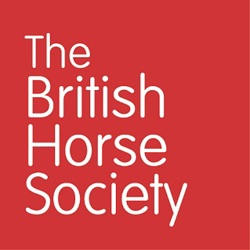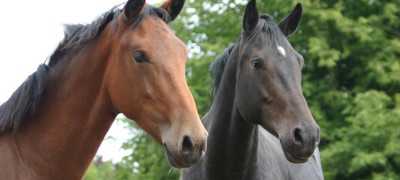This page relates to criminal record checks in England and Wales. Please follow the links for Criminal record checks in Scotland and Criminal record checks in Northern Ireland.
DBS checks and regulated activity
What is a DBS check?
chevron-down
chevron-up
A Disclosure and Barring Service (DBS) check is a criminal record check. The DBS will check to see if a person has any criminal and/or police records and will include information about criminal convictions and cautions. They will also check to see if the person has been banned from working with children.
It is a criminal offence for employers or voluntary organisations to knowingly employ a barred person in regulated activity.
Once a check has been completed, the DBS will provide the person (not the employer) with a certificate called a 'disclosure'.
Who needs to have a DBS check?
chevron-down
chevron-up
Enhanced checks with a Children’s Barred List check can only be made on those who are over 16 and who are working or volunteering in regulated activity with children on a regular, frequent or overnight basis.
What is regulated activity with children?
chevron-down
chevron-up
Regulated activity is defined as unsupervised contact with children which includes teaching, training, instructing, carrying out intimate care, supervising children overnight and driving a vehicle only for children.
A child is a person who has not reached their 18th birthday.
What is considered to be regular, frequent or overnight?
chevron-down
chevron-up
Regular means at least once a week or more.
Frequent means at least three times in a 30-day period.
Overnight means between 2am-6am.
If the above criteria are met, then the person must have an enhanced DBS check - which checks the Children's Barred List.
All organisations are legally required to request enhanced DBS checks on all individuals who work or volunteer in regulated activity on a regular, frequent or overnight basis.
Roles likely to require an enhanced DBS with a Barred List check:
chevron-down
chevron-up
- Proprietor
- Chairperson
- Instructor
- Safeguarding officer
- Team trainer/coach
- First aid officer
- Camp/team supervisor
All of these have the expectation that they will:
- Work unsupervised with children/young people under 18
- Have responsibility for those who work unsupervised with children/young people under 18
- Have responsibility for discipline/welfare
If a role meets all areas but the individual is supervised, they can have an enhanced DBS check but this will not check the Barred List.
General roles which are not likely to require an enhanced DBS check:
chevron-down
chevron-up
- One-off supervised helpers (refreshments etc.)
- Competition judges and jump judges
- Parents who help only their own children
- General stewards
All of these have the expectation that they will:
- Be involved in judging, detached from children/young people under 18
- Have no physical hands-on involvement/be involved in the logistical running of the yard/event
Finding out who to check
chevron-down
chevron-up
Use the DBS eligibility tool to find out what type of check is most relevant for your staff and volunteers.
DBS check applications
The BHS liaises with the DBS in England and Wales to carry out the necessary checks to identify any adults who may be unsuitable to work with children or young people under 18.
Completing a DBS check
chevron-down
chevron-up
We have an online system for checks in England and Wales with our partners uCheck. This service is easy to use and will enable organisations to quickly carry out DBS checks on their staff and volunteers.
Completing an online DBS application
chevron-down
chevron-up
Proprietors or riding club chairmen should contact the BHS Safeguarding team to request to be set up for online DBS checks.
To complete the process, the individual will need their identity documents with all the addresses they have lived at in the last five years. The individual should then log on and follow the step-by-step guide online to complete their application.
The BHS will be notified by uCheck that an application has been submitted and the result will be emailed to the BHS.
The individual will receive their disclosure certificate through the post from the DBS. They must show this disclosure certificate to their employer.
The disclosure certificate is the individual's personal property and it is their responsibility to keep it in a safe place.
Paper applications
chevron-down
chevron-up
Under exceptional circumstances, the BHS is able to offer a paper-based DBS application process. DBS application forms are available from the BHS Safeguarding team.
We also process applications and carry out checks on behalf of many British Equestrian Federation (BEF) member bodies. If you have been asked to complete a disclosure for any member body, you will need to contact them directly first.
Costs and payment
chevron-down
chevron-up
There are two possible charges depending on whether the individual is paid for the role that they need to have the DBS check for or not:
- £65: for a DBS check for a job that is paid, with ID documents verified by a BHS approved evidence checker
- £10: for a DBS check for a job as a volunteer*, with ID documents verified by a BHS approved evidence checker
*The DBS defines a volunteer as 'a person who performs any activity which involves spending time, unpaid (except for travelling and other out-of-pocket expenses), doing something which aims to benefit someone (individuals or groups) other than or in addition to close relatives'.
Payment can be made by BACS, debit or credit card or cheque. All cheques and postal orders must be made payable to the British Horse Society, and be sent to the British Horse Society with the DBS cover sheet/application form.
Who can check an individual's ID documents?
chevron-down
chevron-up
- BHS regional development officer or nation director
- BHS inspector
- BHS assessor
- Proprietor of a BHS Approved Centre, if they are happy to do so
- Approved BHS representatives on a stand at one of the major equine shows
- BHS current Accredited Professional Coach
Contact details
chevron-down
chevron-up
To carry out a DBS check for your organisation in England and Wales please contact the BHS Safeguarding team on 02476 840746 or by email at safeguarding@bhs.org.uk.
Frequently asked questions
What if my employee or volunteer has a criminal record?
chevron-down
chevron-up
This depends on the nature of the information on their disclosure certificate. You can seek advice from the BHS Safeguarding team on 02476 840746 or the BEF Safeguarding Case Management Group to make a risk assessment as to their suitability to work with children.
Having a criminal record does not necessarily mean that a person cannot work with children.
What is regulated activity relating to adults?
chevron-down
chevron-up
The definition for an individual involved in regulated activity when working with adults includes working in healthcare, providing personal care, social work, assisting with general household matters or assisting an adult to conduct their personal affairs.
Should a situation arise whereby an individual could build a trusting relationship with an adult, best practice would be to carry out a DBS check against the child and adult workforce, but only the Barred List check for working with children could be checked. If this applies to your employees or volunteers, please contact the lead safeguarding officer on 02476 840746 to discuss their application.
How often do DBS checks need renewing?
chevron-down
chevron-up
The BHS requires that those individuals working within regulated activity with children must have their DBS check renewed every three years.
Can we accept disclosure certificates from other organisations?
chevron-down
chevron-up
The DBS has the Update Service, which means the British Horse Society can accept certificates and checks made through a similar job or role providing the individual has signed up for the DBS Update Service.
The DBS Update Service costs £16 per year, or is free for volunteers. This is payable directly to the DBS.
For more information or to sign up to the Update Service visit gov.uk/dbs-update-service.


